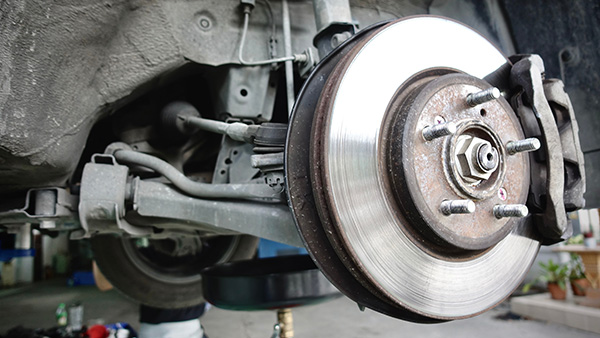
Brakes are one of the most critical safety features of any vehicle, yet they’re often overlooked until something feels “off.” If you’re driving through the bustling streets of Denver, CO, you know how important responsive brakes are, especially with sudden stops and mountainous terrain in the mix. However, brake problems can creep up without warning, turning a routine drive into a potential hazard.
Understanding the common brake issues Denver drivers face—and what causes them—can help you stay safe and avoid costly repairs in the future.
Why Are Brake Problems So Common
Driving conditions in and around Denver can be tough on your braking system. With frequent stop-and-go traffic, steep grades, and unpredictable weather, your brakes are constantly under pressure. Combine that with the region’s fluctuating temperatures, and you have the perfect wear-and-tear recipe.
Even everyday habits, like riding the brakes downhill or neglecting routine inspections, can accelerate problems. But how can you tell when your brakes are trying to signal for help?
Signs of Brake Trouble You Shouldn’t Ignore
Squealing or Grinding Noises
Ever hear a high-pitched squeal when you hit the brakes? That’s often a sign your brake pads are wearing thin. If you let it go too long, that squeal can turn into a grinding noise, indicating that the pads have completely worn out and the metal backing is rubbing against the rotor.
Vibrations or Pulsations
Does your steering wheel shake when you brake? That’s usually a symptom of warped rotors. Heat buildup from heavy braking, common on Denver’s steep inclines, can cause the rotor to become uneven, leading to this telltale vibration.
Spongy Brake Pedal
If your brake pedal feels soft or “spongy,” it’s likely a hydraulic issue. Air in the brake lines or a fluid leak can reduce braking efficiency, making it harder to stop when you need to.
Burning Smell After Heavy Braking
A sharp, chemical smell after intense braking might indicate overheated brakes. This is particularly common when navigating mountain roads or towing heavy loads, as constant braking generates excessive heat.
Warning Lights
If the brake warning light illuminates on your dashboard, don’t ignore it. This light could indicate anything from low brake fluid to a more serious system malfunction.
Common Causes of Brake Problems
Worn Brake Pads
Brake pads naturally wear out over time, especially in urban areas like Denver, where frequent braking is a given. Regularly replacing them prevents damage to other components.
Corroded Components
Denver’s snowy winters can expose your brakes to road salt, leading to rust and corrosion. Over time, this can weaken critical parts, like the calipers and rotors, reducing braking efficiency.
Brake Fluid Issues
Your braking system relies on hydraulic pressure to function. Contaminated or low brake fluid can compromise that pressure, leaving you with diminished stopping power.
Rotor Damage
Rotors bear the brunt of friction when braking and excessive heat or wear can cause them to warp or crack. Damaged rotors not only reduce braking performance but can also wear down new pads prematurely.
Faulty Calipers
The calipers are responsible for pressing the brake pads against the rotors. If they’re stuck or damaged, they can cause uneven braking, reduced efficiency, or even complete failure.
Preventative Measures for Denver Drivers
You don’t have to wait for a problem to appear before taking action. Regular maintenance and mindful driving can significantly extend the life of your brakes.
- Schedule routine inspections to catch wear and tear before it becomes a costly repair.
- Flush and replace brake fluid as recommended to maintain hydraulic pressure.
- Avoid “riding the brakes” downhill by using engine braking to reduce strain.
- Rinse your car after snowy drives to remove road salt and prevent rust buildup.
- A little care goes a long way toward keeping your braking system reliable and safe.
Why Professional Help Matters
Brake systems are complex, and guessing at the problem can lead to more damage—or worse, an unsafe vehicle. We are equipped with the right tools and expertise to diagnose and fix the issue efficiently.
Denver’s unique driving conditions make choosing a local repair shop crucial, as we understand the specific challenges drivers face. Whether it’s replacing worn-out pads, resurfacing rotors, or tackling advanced hydraulic issues, a trusted repair shop will ensure your car is road-ready.
Experiencing brake issues in Denver? South Denver Automotive offers reliable, professional brake services to keep your car safe on the road. Reach out to us today to get started!